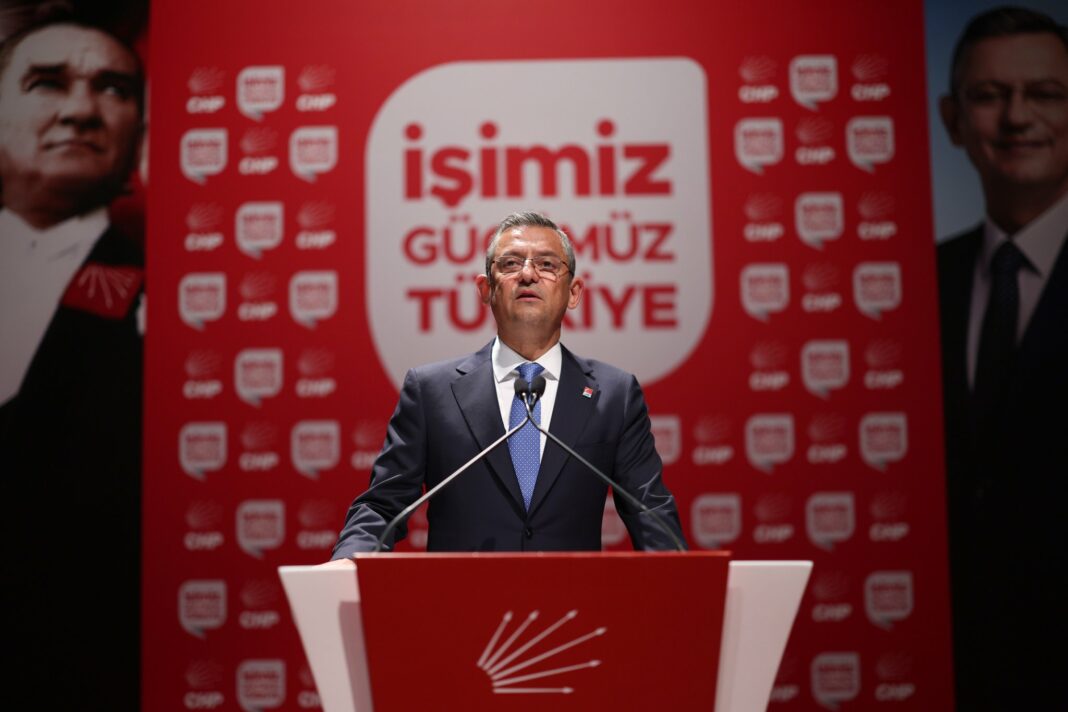Özgür Özel, leader of the main opposition Republican People’s Party (CHP), warned on Wednesday that the government’s recent 30 percent increase in the monthly minimum wage for 2025, perceived by many as insufficient given the high inflation in the country, could ignite large-scale street protests capable of altering the country’s political regime.
Turkish President Recep Tayyip Erdoğan announced the decision on the social media platform X on Tuesday evening, increasing the minimum wage to 22,104 Turkish lira ($630) from 17,002 lira, a move expected to impact more than 7 million workers.
Özel tweeted after the announcement that the small increase in the minimum wage was “the latest sign that Tayyip Erdoğan has lost touch with the realities of this country,” where citizens are struggling with the increased cost of living caused by high inflation.
Commenting on the wage hike during a live program on Halk TV — one of the few television stations in Turkey critical of the government — the CHP leader on Wednesday warned of potential mass protests if the public’s grievances are not addressed.
“A million people can change regimes in the Middle East. If a million people could take to the streets [here], the regime could change,” Özel said.
Turkey switched from a parliamentary system of governance to an executive presidential system that granted President Erdoğan and his ruling Justice and Development Party (AKP) sweeping powers through a referendum passed in April 2017. It has been criticized for removing constitutional checks and balances, thus leading to a further weakening of Turkish democracy. Critics call the system “one-man rule.”
Opposition parties have frequently stated that they would revert to a parliamentary system of governance if they manage to unseat Erdoğan through elections.
Referring to the AKP government, Özel added, “If a million people hold a rally for an early election, they won’t be able to withhold the ballot box from us. They know that the next morning, there will be two million of us.”
Talk of an early election came to the forefront after the AKP’s defeat in the March 31 local elections, where the CHP emerged as the leading party for the first time in 47 years.
The last presidential and parliamentary election was held in Turkey in May 2023, when Erdoğan secured yet another term in office. The next election is scheduled for 2028.
However, Özel previously told reporters that he predicts Turks will to go to the polls again in less than two years, sometime in the middle of the ordinary period of five years between the general elections.
The CHP leader also accused Erdoğan of leaving millions of minimum wage workers who support his AKP government, along with hundreds of thousands of voters of his ally, the Nationalist Movement Party (MHP), to fend for themselves.
Özel’s comments came amid widespread criticism of the government’s minimum wage hike, with labor unions, opposition parties and economists arguing that the increase falls short of addressing rising living costs and inflation.
Ergün Atalay, president of the Confederation of Turkish Labor Unions (Türk-İş), which announced last week that it expected the minimum wage to be raised to 29,583 lira, said in a press statement on Wednesday that a 30 percent increase “was not acceptable.”
Atalay also announced that unless “a fair adjustment” is made, Türk-İş will not participate again in the Minimum Wage Determination Commission, which consists of 15 members, with five representatives from each group: the government, workers and employers.
Economists predict that this minimum wage increase will contribute to rising inflation in the coming months. According to calculations by Reuters based on central bank studies, a 25 percent wage increase would raise annual inflation by between 1.5 and 5 percentage points.
Turkey’s inflation declined to 47.09 percent in November, down from an annual high of 75 percent in May, primarily due to tight monetary and fiscal policies. However, the improvement has been slower than previously forecast, according to the central bank.
